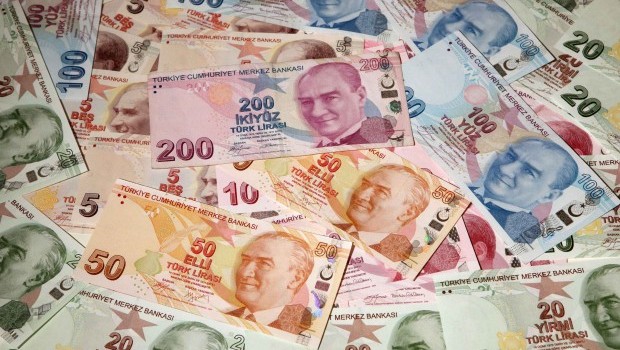Batman, Reuters—Turkey could see risks to its growth forecasts this year if local election results on Sunday fail to produce a decisive win for the ruling party, Finance Minister Mehmet Şimşek said in an interview.
The government could lower its 4 percent growth target for 2014 if the Justice and Development Party (AKP) failed to get 40 percent of the vote in the nationwide local elections on Sunday, he said, roughly the level it saw at the last local elections in 2009.
The local election is the first big test of Prime Minister Recep Tayyip Erdoğan and the ruling AKP’s popularity since protests last summer and a corruption scandal that erupted in mid-December. It is widely seen as a referendum on Erdoğan’s rule, and the outcome may dictate whether he runs for the presidency in an August election or stays on for a fourth term as prime minister.
“If the result of next weekend is that political stability is not under threat, that is, if there is support of more than 40 percent [for the AKP], then the uncertainty related to the presidential election will be limited,” Şimşek told Reuters in an interview in the southeastern city of Batman.
“If a perception emerges from the elections that there is a threat to stability, the downward risks to growth will increase and there could be a revision” to the government’s 4 percent economic growth target this year, he said. But he added that Turkey’s economy was “less fragile than it appeared from abroad.”
The corruption scandal, which began with the arrest of three ministers’ sons and businessmen close to Erdoğan, has undermined confidence in the outlook for growth, helping send the Turkish lira to record lows and triggering a huge hike in interest rates in January to defend the currency.
Turkey’s consumer confidence index tumbled to a four-year low in February. But industrial production appears to have held up, with output rising 7.3 percent year-on-year in January.
Data on Tuesday showed the number of foreign visitors to Turkey rose 6.6 percent in February, in a boost for its tourism industry, a crucial source of foreign currency.
Şimşek said he expected economic growth last year, which is due to be announced on March 31, to be around 4 percent. He also said there was currently no need to revise the government’s budget targets, adding that he expected budget improvements to continue. The central government budget deficit-to-gross domestic product ratio was seen at 1.9 percent this year, the minister said.
Ratings agency Moody’s said in a report on Tuesday that political turbulence and market volatility were heightening Turkey’s external vulnerability, but that fiscal policy was expected to be able to absorb some of the shocks to the economy.
Financial markets were steady on Tuesday, with the TRY broadly flat at 2.2360 against the dollar and the main share index 0.43 percent higher. The 10-year benchmark bond yield fell to 11.29 percent from 11.36 percent.

